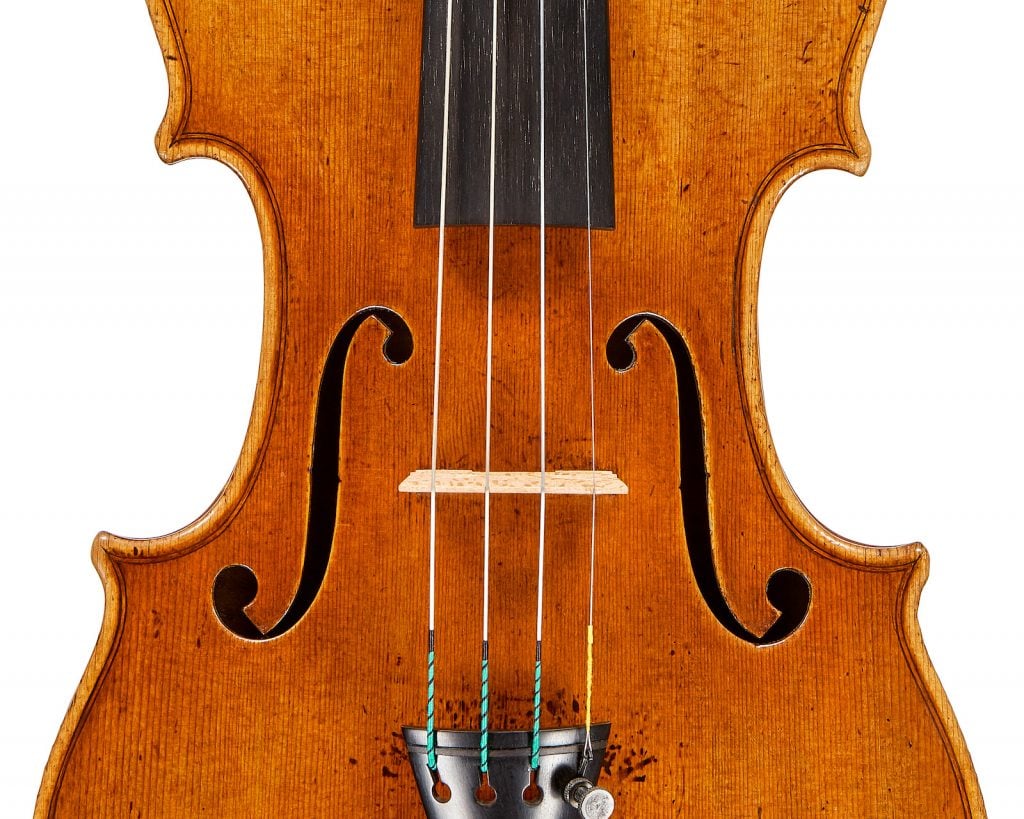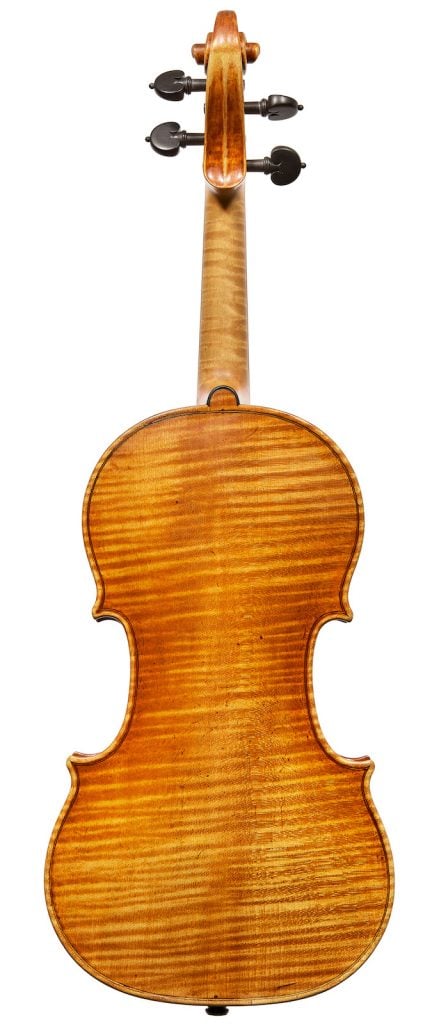Art World
A ‘Golden Period’ Stradivari Violin Once Owned by Catherine the Great Could Sell for Millions of Dollars at Auction
The violin has been in the collection of no fewer than two Russian Empresses, including Catherine the Great.

The violin has been in the collection of no fewer than two Russian Empresses, including Catherine the Great.

Brian Boucher

A 1708 violin crafted by Antonio Stradivari, one of the greatest luthiers in history, will be offered for sale in New York on June 8 at Tarisio Fine Instruments and Bows. Once owned by Russian Empress Catherine the Great, it is referred to as the “Empress Caterina.”
Tarisio has not revealed an estimate, but the house has had much success selling the master’s instruments in the past. The auctioneer holds the record for a Stradivari violin, $15.9 million for the “Lady Blunt,” from a 2011 sale. The “Lady Blunt” is said to be the second-best-preserved of his violins, while the best-preserved, the “Messiah,” resides at Oxford University’s Ashmolean Museum. (“Like the Messiah, worth waiting for,” brags the institution’s website, a bit inscrutably.) Last year, the same house sold the second-priciest Stradivari, the “Da Vinci, ex-Seidel,” for $15.3 million.
The current example comes from his “Golden Period,” which lasted from about 1700 to 1720. Before last year’s Tarisio sale, a Golden Period violin had not come to the block for some 15 years.

Courtesy Tarisio, 2023.
Online bidding opens June 8. Made from maple and spruce, the instrument is in excellent condition, with all principal parts original, and bears its original label, according to Tarisio.
The piece passed through the hands of no fewer than two Russian empresses. It emerges in the historical records in 1898, among the papers of W. E. Hill & Sons, a London shop specializing in stringed instruments. Alfred Hill visited Russia with one of his best customers, Baron Johann Knoop, and, while there, inventoried the collection of Prince Youssapoff, which included a number of Stradivari instruments, among them the “Empress Caterina.”
By Hill’s account, the Russian ambassador to Venice acquired the instrument for Empress Elizabeth Petrovna, from whom it passed to Catherine the Great, then to secretary of state Adrian Moïsevitch Gribovsky, a colonel and court advisor (who, according to Tarisio, “had his own serf orchestra”), and then it went to his son, Vasily Yakovlevich Guberti.
Hill brought the violin back to London in 1898. It didn’t stay on the shelf long. He sold it the following year to French violinist Marie Douglas Shothert, who appears holding the instrument in a painting by Hubert von Herkomer owned by the University of London.
She later traded it back, and, in the following years, it passed through the collections of violinist Henri Belville, French coffee magnate Prosper Maurel, violinist Leo Guetta, his daughter Peggy Guetta Finzi, pioneering Philadelphia radiologist Jacob Gershon-Cohen, tropical fish expert Herbert Axelrod, and industrial entrepreneur Giorgio Feige, whose heirs are offering it for sale.
White Guetta owned it, it was exhibited at the 1937 Stradivari Bicentennial exhibition in Cremona, the luthier’s home city. The violin comes with certificates from Hill and each of the merchants who handled it thereafter: Rembert Wurlitzer, William Moennig & Son, Silvestre & Maucotel, and Caressa & Français.